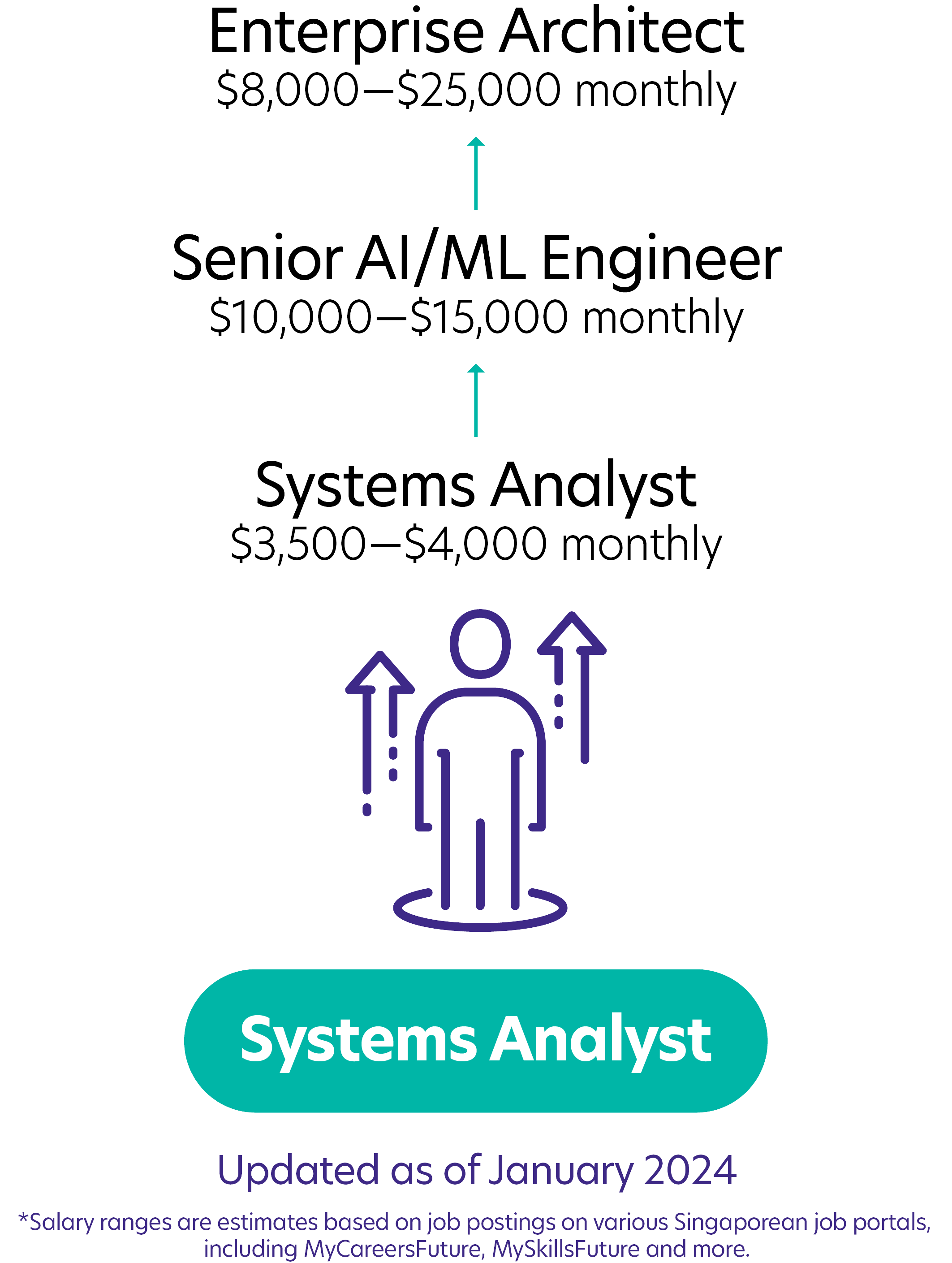
Systems Analysts implement, support and maintain IT systems to meet business needs.
Systems Analyst Job Description
- Determine system requirements needed by users.
- Carry out system testing and maintenance.
- Analyse and evaluate current systems.
- Recommend improvements and alternative solutions.
- Create functional and technical specification documents.
Note
Although Systems Analysts do not usually focus on coding, they need to be able to read programming languages like Python and Java. Hence, knowledge of programming languages is important!
What you should know about Systems Analyst jobs in Singapore
Nature of work
Collaboration is important as projects involve many stakeholders, such as clients, vendors and programmers.Key advice
Expect to work overtime and weekends during peak periods for projects, especially during the implementation phases.-
Entry RequirementsEntry Requirements
- A diploma or bachelor's degree in Computer Science or IT-related fields is preferred.
- Be aware of the latest technologies and take up internships to learn and grow your portfolio!
-
Possible PathwayPossible Pathway

Skills you need to pursue a Systems Analyst career in Singapore
Code Reading
Interpret the structure, logic, and syntax of computer code to review and comprehend existing codebases.Performance Tuning
Analyse systems or applications to identify performance bottlenecks and enhance overall performance.Systems Analysis
Understand technical components and business operations to design or modify systems.Problem-Solving
Identify issues within systems, think critically, and devise effective, practical solutions.Communication
Articulate technical concepts clearly and effectively to a non-technical audience.Collaboration
Work effectively with team members, stakeholders, and other departments.Related Job Roles
Explore Other Programmes
Browse AllYou have bookmarked your first item!
Find it in My Discoveries with insights on your interests!



